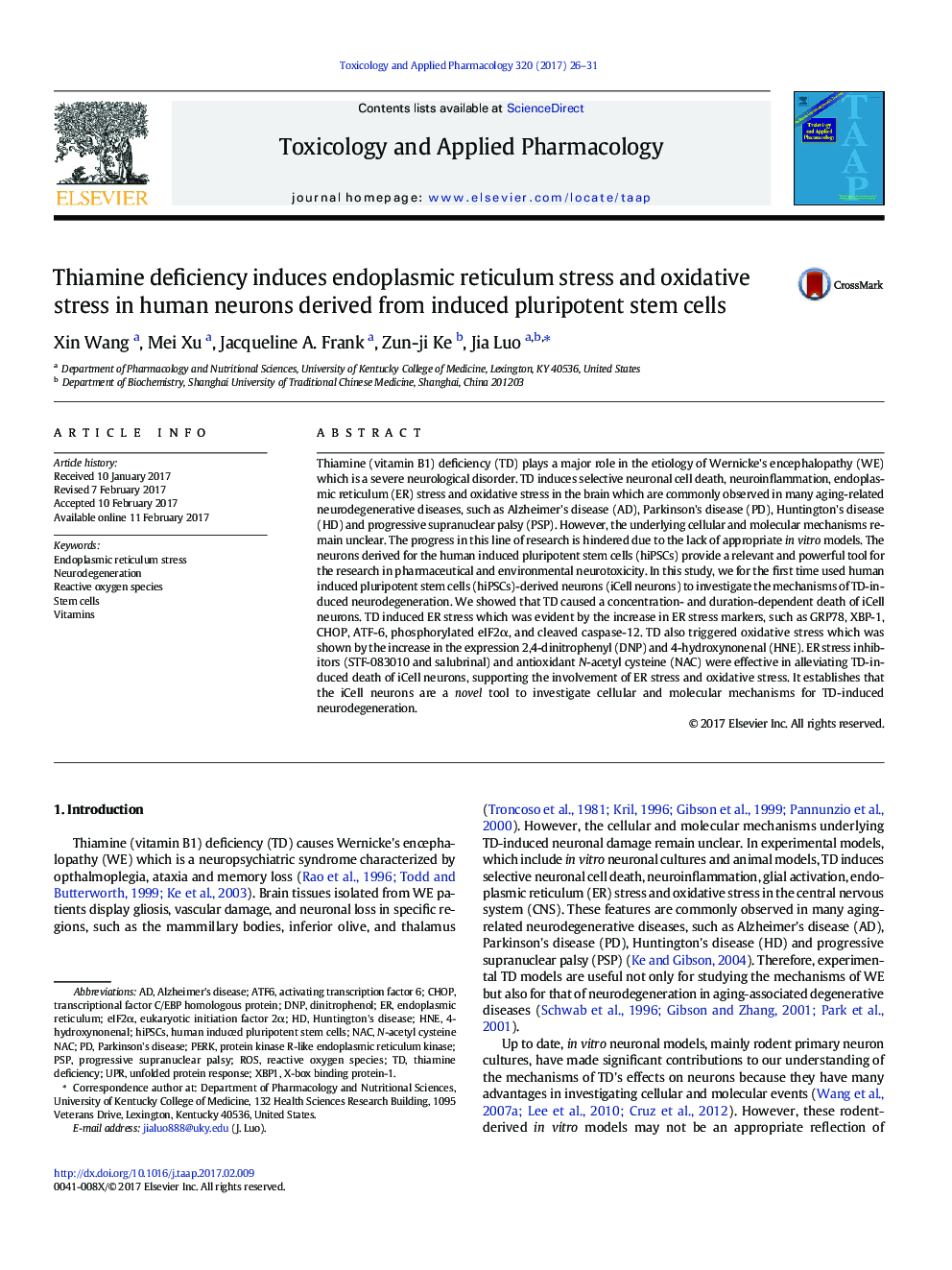| کد مقاله | کد نشریه | سال انتشار | مقاله انگلیسی | نسخه تمام متن |
|---|---|---|---|---|
| 5558446 | 1561142 | 2017 | 6 صفحه PDF | دانلود رایگان |
- Thiamine deficiency (TD) causes death of human neurons in culture.
- TD induces both endoplasmic reticulum (ER) stress and oxidative stress.
- Alleviating ER stress and oxidative stress reduces TD-induced neurotoxicity.
Thiamine (vitamin B1) deficiency (TD) plays a major role in the etiology of Wernicke's encephalopathy (WE) which is a severe neurological disorder. TD induces selective neuronal cell death, neuroinflammation, endoplasmic reticulum (ER) stress and oxidative stress in the brain which are commonly observed in many aging-related neurodegenerative diseases, such as Alzheimer's disease (AD), Parkinson's disease (PD), Huntington's disease (HD) and progressive supranuclear palsy (PSP). However, the underlying cellular and molecular mechanisms remain unclear. The progress in this line of research is hindered due to the lack of appropriate in vitro models. The neurons derived for the human induced pluripotent stem cells (hiPSCs) provide a relevant and powerful tool for the research in pharmaceutical and environmental neurotoxicity. In this study, we for the first time used human induced pluripotent stem cells (hiPSCs)-derived neurons (iCell neurons) to investigate the mechanisms of TD-induced neurodegeneration. We showed that TD caused a concentration- and duration-dependent death of iCell neurons. TD induced ER stress which was evident by the increase in ER stress markers, such as GRP78, XBP-1, CHOP, ATF-6, phosphorylated eIF2α, and cleaved caspase-12. TD also triggered oxidative stress which was shown by the increase in the expression 2,4-dinitrophenyl (DNP) and 4-hydroxynonenal (HNE). ER stress inhibitors (STF-083010 and salubrinal) and antioxidant N-acetyl cysteine (NAC) were effective in alleviating TD-induced death of iCell neurons, supporting the involvement of ER stress and oxidative stress. It establishes that the iCell neurons are a novel tool to investigate cellular and molecular mechanisms for TD-induced neurodegeneration.
Journal: Toxicology and Applied Pharmacology - Volume 320, 1 April 2017, Pages 26-31
